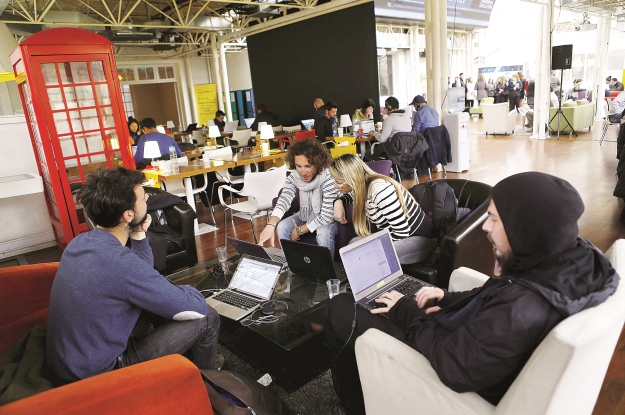This article is adapted from AQ’s print issue on entrepreneurship. To see our AQ Top 5 list of young entrepreneurs in Latin America, click here.
Emprendedor, emprendedurismo and emprendimiento might have existed in Latin American dictionaries before 1999, but the terms were rarely a point of reference for anyone. And when Latin Americans did think about becoming an entrepreneur, their reference points and role models were the founders of companies like Google, Microsoft, eBay or Amazon, just to name a few.
But times have changed, and today there are very successful entrepreneurs in Latin America who have become role models in their home countries and beyond.
In Argentina alone, there are four “unicorn” companies valued at well over $1 billion. And successful entrepreneurs with a can-do attitude are chasing their dreams all over the Western Hemisphere, from Chile to Brazil to Mexico and every country in between. Unlike 18 years ago, when only a few dared to step out and declare themselves entrepreneurs, today there are many, and every day there are more.
Governments realize the importance of encouraging entrepreneurship as well. Latin American cities and countries are trying to recreate Silicon Valley. They are establishing shared workspaces like La Maquinita Co. in Buenos Aires and Sinergia Cowork in Montevideo. They are creating incentives for entrepreneurs to relocate with business-friendly regulations and tax incentives. They are providing funds for venture capital through their development banks, like the Inter-American Development Bank’s Multilateral Investment Fund, which supports emerging businesses to solve regional development issues. Local entrepreneurs are supporting the effort as well, together with role models and angel investors. This simply was not the case just 10 or 15 years ago.
Yet while there are many more entrepreneurs, as well as young people wanting to work at startups, there remain many hurdles to entrepreneurship in Latin America. First and foremost is financing. Today, there are angel investors in Latin America as well as friends and families who have become more accustomed to financially supporting budding entrepreneurs. However, the venture capital funding rounds by which these startups obtain their investments continue to be very challenging, with few having access to those funds. Additionally, bank loans for startups and small businesses are still very difficult to obtain. Unlike the U.S., where successful companies have access to very liquid capital markets that create exits for investors, thus closing the investor circle, in Latin America the capital markets are simply not as liquid nor friendly. In 2015, $58.8 billion in venture capital was invested across the U.S. according to the PwC MoneyTree Report, whereas in Latin America, $6.5 billion in private equity and venture capital was deployed, according to the Latin American Private Equity and Venture Capital Association. Finally, the New York Stock Exchange or the NASDAQ are simply not realistic solutions for most Latin American companies — even for high-impact firms.
And of course, if you are a female entrepreneur, the environment is even more difficult!
There are many other unique challenges along the road to becoming a successful entrepreneur in Latin America that go well beyond the multitude of normal operating problems faced by startups in other parts of the world. There is still far too much red tape and there are too many barriers to opening and, importantly, closing companies. The majority of Latin American countries still have antiquated laws that hold the entrepreneur personally accountable in bankruptcy or liquidation should a company fail. Such laws force entrepreneurs to defend themselves in the courts for years, as opposed to trying again, as is the path in the U.S. All this adds to the still-lingering cultural stigma across the region associated with failure.
In spite of all the challenges, however, young people in droves are deciding to take the entrepreneurial route, smashing through the traditional paths in their societies. It is this trend that makes me so excited and optimistic about the future of Latin America, its potential for inclusive growth, as well as the ability to create real integration across the Americas.
—
Segal is president and CEO of Americas Society and Council of the Americas. Previously she worked in the private sector with Latin America and other emerging markets for over 30 years. Segal is also a director of the Tinker Foundation, Scotiabank, and Mercado Libre.






